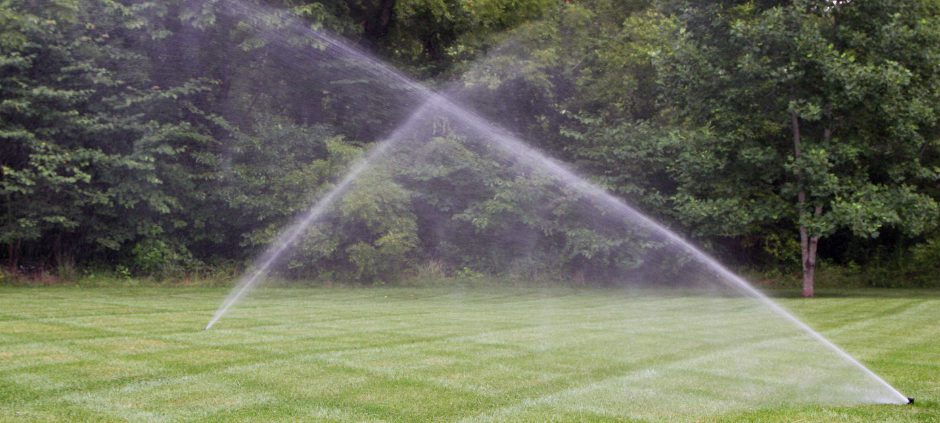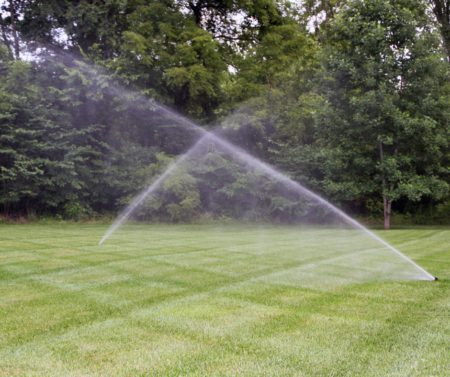Why You Need Irrigation in SC this Winter
Warm summer days mean watering the grass to help it grow. But what happens to the grass during the winter months? It’s not nearly as hot outside, so does the grass still need to be watered? In South Carolina, winters tend to be mild, so it is still important to make sure the grass has plenty of water to help it thrive. The key, though, is to avoid overwatering the grass and ensure it continues to be healthy and ready to grow again during the spring.
Less Water is Needed During the Winter
Summer heat tends to mean the grass needs a lot of water to stay lush and green. The water is needed to help the grass grow, help it pull in the nutrients it needs from the soil, and help keep it healthy, so it survives through the hottest days of the year. When the summer heat starts to dissipate in the fall, the grass doesn’t need as much water. Many types of grass will grow slower during the winter months, so they don’t need as much water to survive.
The grass will also start to go dormant during the winter to deal with the lower temperatures and potential snow, so it’s not going to need as much water as it did during the summer. It is important to prevent overwatering during the winter months, as that can cause the grass to drown or freeze if the temperatures dip too low. An irrigation system can help ensure the grass receives enough water at the right time to help it thrive.
It’s Still Important to Water the Lawn
Even though the grass isn’t going to need as much water during the winter, it does still need some. That’s where irrigation can help. Though rain is common during the winter months, there will be periods where it just doesn’t rain as much, and the grass won’t get enough water naturally. On colder days, it’s not generally necessary to water the lawn, as it won’t really need the extra water. During warmer days in the winter, if it hasn’t rained recently, it may be a good idea to water the lawn a little bit.
During the winter, the grass will start to turn brown. This isn’t a sign that it’s dying. It’s a sign that it’s going dormant, and it will continue to grow again in the spring. Don’t water based on the look of the grass, as turning brown naturally happens during this time of the year, and overwatering is going to cause problems for the grass. Instead, just add water if it hasn’t rained in a while, and know that the brown will turn lush and green again with the warmer spring weather.
Benefits of Watering During the Winter
Proper irrigation and paying attention to the weather can help keep the grass watered properly during the winter months. Some of the benefits of doing this include the following.
Keep the Roots Hydrated
Watering does help keep the roots of the grass hydrated, so the grass can get water as needed from the soil. It’s important to prevent overwatering and having standing water on the grass in case it freezes, but keeping it watered as needed will help keep the roots healthy and hydrated.
Fight Cold Weather Damage
Cold weather can damage the grass, but making sure it has the water it needs can help strengthen it, so it’s able to survive the winter. In some cases, it can help prevent frost damage when the grass is watered before the temperatures start to drop.
Helps Retain Heat and Moisture
Water retains heat, so soil that has water in it is going to be warmer than soil that is dry and bare. By watering the lawn during the winter months, it’s possible to provide a little extra heat that can help the grass survive when the temperatures get a little lower, and there is the potential for a freeze.
Added Protection From Dormancy
Dormancy is normal for grass during the winter, but the roots can become damaged. Keeping the grass watered helps protect them from this, which protects the entire yard from damage. When the grass has the right amount of water throughout the winter months, it’ll come back bright and green when the temperatures warm up in the spring.
What to Be Aware of Before Watering the Lawn
Although water is necessary even during the winter months, it is important to be aware of the weather trends and the amount of rain the grass receives to make sure it’s not overwatered or watered at a time that will cause damage. Proper irrigation includes making sure the grass is protected. When the temperatures start to lower, grass that is watered can be better protected from a light frost. However, if the grass is watered right before a freeze, the grass could be damaged or killed. Paying attention to the weather in the week ahead and how much it has rained will help with keeping the grass watered and preventing this kind of damage.
Types of Irrigation Systems to Consider
If there isn’t an irrigation system in the yard yet, it’s time to think about having one installed. The winter months are the perfect time to install an irrigation system for most homes. Today, homeowners have a few different types of irrigation systems they may want to consider depending on the setup for their lawn. It is also possible to combine different types to create the perfect setup for any yard.
Sprinkler Systems
A sprinkler system is the standard type of irrigation system used for homes today. The irrigation system can include pop-up sprinklers or ones that remain in place. The main benefit of this type of system is that it can be used anywhere, even in large open spaces. It’s also a cost-effective and low-maintenance system, making it a great option for any homeowner. Smart systems are now available that can determine whether or not the grass should be watered based on the local weather, which makes taking care of the grass a breeze.
Trickle or Drip Irrigation
Trickle or drip irrigation systems use pipes with holes that go throughout the garden to where water is needed. These are commonly used in vegetable or flower gardens, as they deliver water exactly where it’s needed. The water drips out of the pipes, allowing it to reach the soil directly. This is not a good type of irrigation system for large open areas but is perfect in gardens where the water needs to reach the roots of the plants directly. It is possible to bury the plumbing a little bit under the soil, creating subsurface irrigation for plants.
Surface Irrigation
Surface irrigation is a method of reshaping the land to dictate where the water goes. For larger areas of land, this can be a great way to make sure the water moves through the yard properly. It can be combined with other types of irrigation systems to make sure all of the grass receives enough water.
Though the grass may not need as much water during the winter, irrigation is still important for South Carolina homes. If you don’t have an irrigation system yet or want to have it upgraded to better meet the needs of your yard, contact Charlotte Lighting and Hardscapes online or by calling 980-226-7481.







